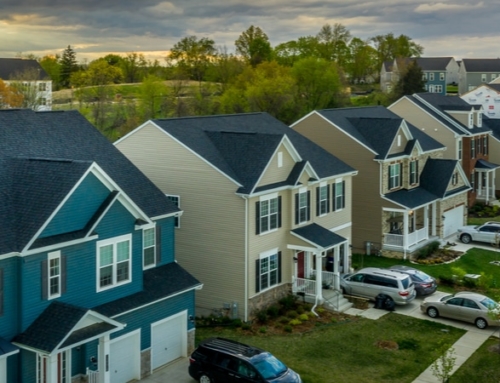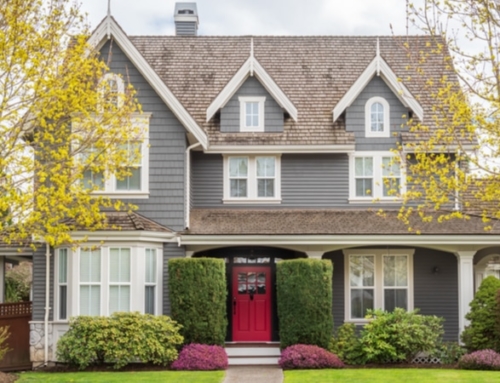I’ll admit to it: When home prices were soaring in my neighborhood, it made me feel really smart.
Like so many millions of other homeowners, we concluded that we chose the right house in the right neighborhood at the right time. And as the years went by, and all of us on the block could count our home appreciation month by month, all this paper equity made us feel financially secure, as in “Now we know how we’re going to pay our college tuition bills down the road.”
But as they say, easy come, easy go. Home prices in our neck of the woods have been falling just as they’ve been falling around the country.
The Case-Schiller Home Price Index released this week showed home prices in the top 10 metropolitan areas declined more than 13 percent since last year. Home prices declined in the top 20 markets, but if you were a single family homeowner living in Las Vegas, Phoenix or Miami, you really got swatted: Single family home prices in those cities declined by a fifth.
Worse, many economists don’t believe we’ve seen a bottom on housing prices. Some estimate home prices could drop a total of 25 percent from their recent highs.
We’ve lived in our house for nearly 15 years, so if the price comes down even 20 to 25 percent, there’s still an excellent chunk of appreciation to fund the college dreams of our pre-teens. And, we’ve been working hard to pay down our mortgage balance, adding to our equity. I still feel like we made a good choice.
But if you bought your home in the last two to three years, all of your financial hopes and dreams, not to mention a good dose of self-esteem, may have evaporated overnight.
And, if you bought your house hoping to make a fast $50,000, you may find now that your home is worth $50,000 to $100,000 less than you paid for it. It may even be worth less than your mortgage balance. This is fine as long as you don’t have to sell and you can afford your mortgage payment and plan to live in your home for some time to come.
If the news isn’t bad enough, I’ve been hearing from readers around the country who are in shock that their home equity lines of credit have been shut off. Apparently many readers missed the fine print on their loan documents that said the lender has the right to shut down the line of credit if their homes fell in value.
(And for those of you who are able to sell short – that is sell your home for less than what you owe the lender – and you don’t have the lender forgive whatever part of the mortgage balance you can’t pay, you may find that the lender may come after you for its loss or the private mortgage insurer that paid the lender its loss may come knocking at your new rental house door to recoup that money.)
This is what a stuck housing market looks like. Nobody feels that smart anymore. The question is what’s going to help?
At its most recent Open Market Committee Meeting, the Federal Reserve Bank lowered the short-term interest rates another 25 basis points, to 2 percent. The collective groan you heard was from anyone living on a fixed income, who knows that the paltry sum they’re earning on their savings accounts and CDs isn’t enough to keep up with inflation, let alone the fast-rising cost of basic necessities.
But longer-term mortgage interest rates haven’t quite fallen along with CD rates. And while you can get a 30-year loan for around 6 percent if you have excellent credit, which is a terrific mortgage interest rate if you look at it from a historical perspective, it isn’t low enough to compensate for the other mitigating factors.
The dramatic drop in home equity has spooked home sellers. Foreclosure rates have skyrocketed, hitting new records. Banks are still taking weeks and weeks and weeks to parse offers from prospective buyers. Buyers are getting fed up and are moving on to make other low-ball offers. Interest rate locks are expiring, but if you have a jumbo loan (over $417,000), in some cases you’re looking at a rate above 7 percent, even if you have good credit (and more like 9 percent if you have mediocre credit).
Fighting through all this to get a deal done is like wading through Jell-O. Just ask any real estate agent who hasn’t torn his or her hair out yet.
If the real estate news wasn’t bad enough, consumers have been spooked by rising prices on the basic necessities of life. The cost of gas is roughly the same as the cost of a gallon of milk. (If you want to buy a gallon of organic milk, it’ll cost nearly double.) Stories in the media about how consumers are selling family heirlooms on Craig’s List and E-Bay to put peanut butter and jelly on the table are laid out next to stories about how low consumer confidence has fallen. Yuck.
The good news is that eventually, we’ll move through the recession. We’ll get through the presidential election (traditionally a drag on any real estate market), and people will start buying homes again.
Starting up a real estate market is a lot harder than getting the stock market rolling. But once it gets rolling, everyone is going to feel a whole lot better.
One final thought: If your lender has shut off your home equity line of credit (HELOC), you can request (and pay for) an appraisal to prove to the bank you have enough equity to support the HELOC. Or, if values in your area haven’t gone down or you still have equity in your home, you can find another lender and get a different HELOC.
May 2, 2008.






Leave A Comment